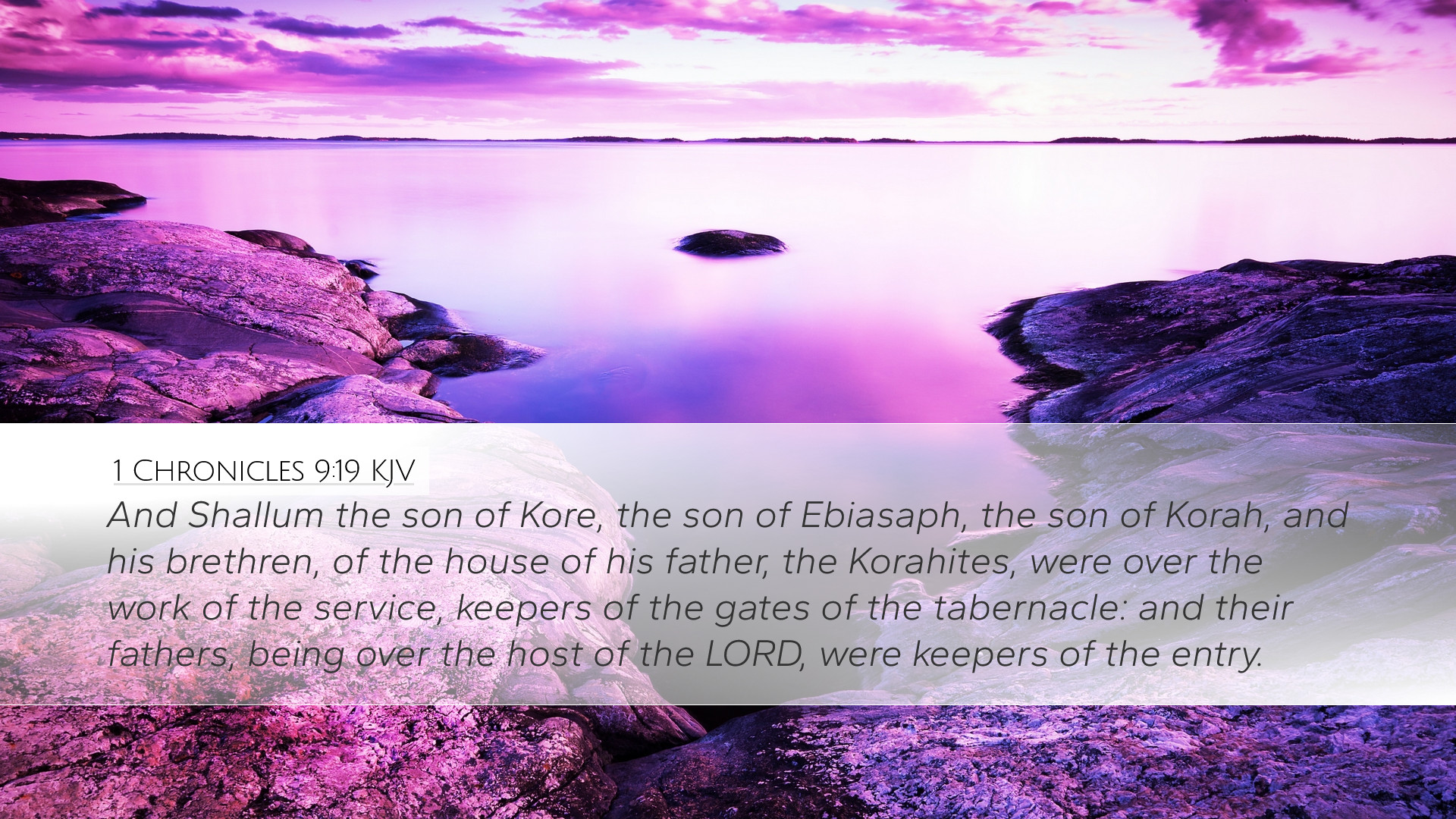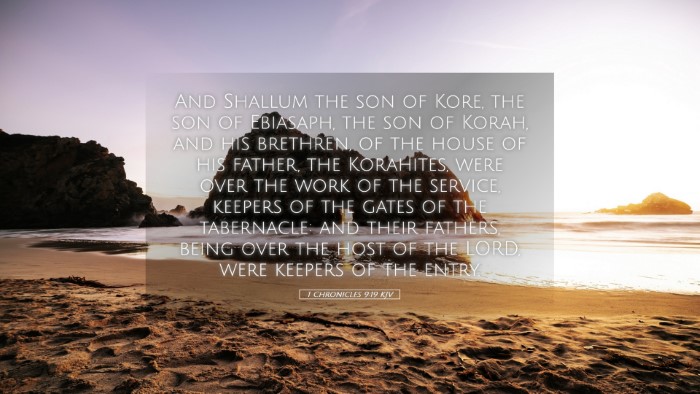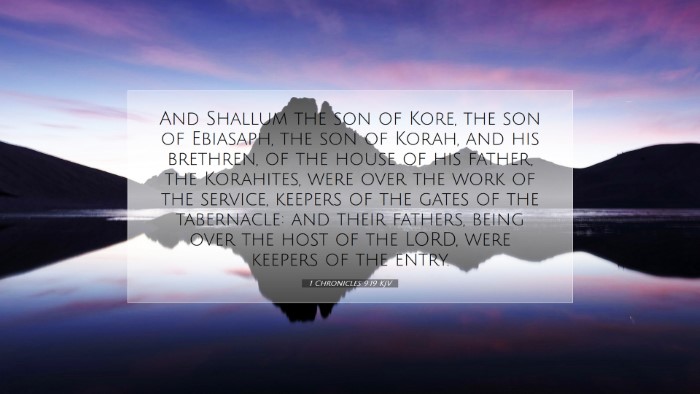Commentary on 1 Chronicles 9:19
Verse: "And Shallum the son of Kore, the son of Ebiasaph, the son of Korah, and his brethren, of the house of his father, the Korahites, were over the work of the service, keepers of the gates of the tabernacle: and their fathers, being over the host of the Lord, were keepers of the entry." (1 Chronicles 9:19)
Introduction
This verse is part of a larger genealogical record and historical account found in the first book of Chronicles. It highlights a specific role within the Levitical priesthood, emphasizing the significance of the Korahites in temple service and their responsibilities as gatekeepers of the tabernacle. In exploring this verse, we draw upon the insights of esteemed biblical commentators such as Matthew Henry, Albert Barnes, and Adam Clarke.
Exegesis of 1 Chronicles 9:19
Lineage and Significance: The verse introduces Shallum, a descendant of Korah, a family known for its tumultuous history. Despite Korah’s rebellion against Moses (Numbers 16), the descendants of Korah emerged in service to God at the tabernacle. This suggests a theme of restoration and redemption, where those who descended from a family once marked by rebellion are now enshrined in a holy calling.
Role as Keepers of the Gates: The role of the Korahites as gatekeepers of the tabernacle denotes both privilege and responsibility. This position is pivotal as it underscores the importance of maintaining the sanctity of God's dwelling place. Their duty could be seen as symbolic of spiritual vigilance, guarding against not only physical intrusions but also spiritual impurities.
Insights from Commentators
Matthew Henry
Henry emphasizes the importance of the Korahites in his commentary. He notes that Shallum and his family were entrusted with a significant position in the worship of God. He remarks that their faithfulness in service can be a lesson on God’s ability to redeem a lineage from past failings. Henry encourages the faithful to see their position in God’s house as a commitment to holiness, reflecting on the duality of judgment and mercy present within God’s dealings with mankind.
Albert Barnes
Barnes discusses the genealogical aspect of this verse, suggesting that the preservation of these records highlights God’s faithfulness to His covenant. He points out that even in a history marked by disobedience—like that seen in the rebellious acts of Korah—the lineage was preserved for divine service. Barnes also notes that the responsibilities entrusted to Shallum illustrate divine order in worship and the necessity of recognizing authoritative structures within the community of faith.
Adam Clarke
Clarke provides a thorough examination of the term "Korahites," linking it to the historical context of their service. He elaborates on the role of gatekeepers, how this responsibility required a close adherence to the Law, and the implications for congregational life today. Clarke highlights that the roles assigned to individuals within the temple service were part of a divine plan and should encourage contemporary believers to embrace their spiritual gifts and functions within the body of Christ.
Theological Reflections
Grace in Continuity: The mention of Shallum’s lineage signifies the continuity of God’s grace, showcasing how God can restore and utilize even those with a troubled heritage for His glory. The Korahites serve as an example that reminds believers that God's purposes prevail over human failures.
Service to the Lord: The emphasis on the service of the Korahites suggests that true worship involves active participation in the life of the community of faith. Gatekeeping is a metaphor for guarding one’s heart, mind, and actions in the face of temptations and distractions. Faithful service is a call to embody grace and dedication in our roles, whatever they might be.
Conclusion
As we reflect on 1 Chronicles 9:19, it becomes clear that an understanding of historical context, family lineage, and divine calling enriches our appreciation of Scripture. The Korahites’ role reminds us of God’s sovereignty, the power of redemption, and the importance of faithfulness in serving God's people. Pastors, theologians, and students alike can glean insights from the lives of those committed to serving God, understanding that every role in the house of God plays a part in His greater plan.


